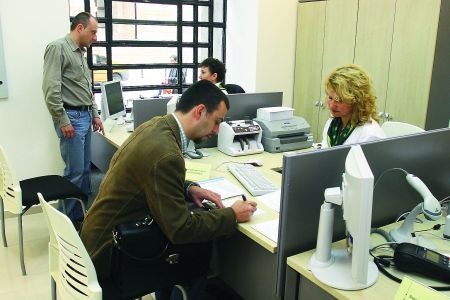
The effective cost of loans in lei dropped slightly in April.
Loans in lei were cheaper in April than a month before, according to data reported by the commercial banks to the National Bank of Romania (BNR). At the same time, the effective cost of credits in euro raised slightly.
The reduction in costs of the loans in lei doesn't depends on the successive increases of the monetary policy interest made by BNR, but this move can be caused by more liquidities in lei. At the same time, the increase of euro loans cost can be justified by the increase of the costs supported by banks for the resources attracted from outside the country in order to grant credits in foreign currencies in the local market.
April is the first month of this year when the credits in lei are cheaper, and those in euro are more expensive.
On the other hand, interests for new deposits in lei recorded a larger advance in April than in the previous months, because the banks were trying to enlarge their liquidities, but also to protect the sums from the inflation rate.
The moves of the banks
The average effective annual interest of consume loans in lei dropped in average with 0.10 percents, reaching 17.60% a year, and credits for homes dropped in average with 0.21 percents, lowering under 11% a year. Mortgaging credits in lei have a very small weight in the value of new credits granted to the population.
For credits in euro, the movement is opposite. The effective cost of consume credits raised in average with 0.26 points, to 11.05%. At the same time, the average effective annual interest for mortgages in euro grew with 0.15 points reaching a yearly average of 8.36%.
The influence is not very significant in the client's pocket, but the expenses from April could signal the beginning of a trend.
The average installment of a mortgage credit of 100.000 euro which follows to be payed in 30 years grew with 10 euro in April, compared to March. In March, the medium installment to this kind of credit was of 728 euro, and in April it reached almost 738 euro because of the DAE increase. Banks are reporting to the central bank an average DAE for new granted loans. The average cost of new credits is smaller and because the financing institutions are practicing "small" nominal interests to loans from the current offer targeting to attract more customers. Deposits in lei: interest from 9.37% a year
The average interest for new deposits in lei jumped from 8.17% a year in March to 9.37% a year in April. Savings deposited to banks in lei are payed better from a month to the next. The largest leap was recorded by the outturn for deposits with terms between a month and three months. So, interests for this kind of deposits reached a yearly average of 9.72%. The economies deposited for periods between three and six months have better interests - 10% a year.
Compared to the first month of the year the interest increase is spectacular: from 7% a year to 9.37% a year.








